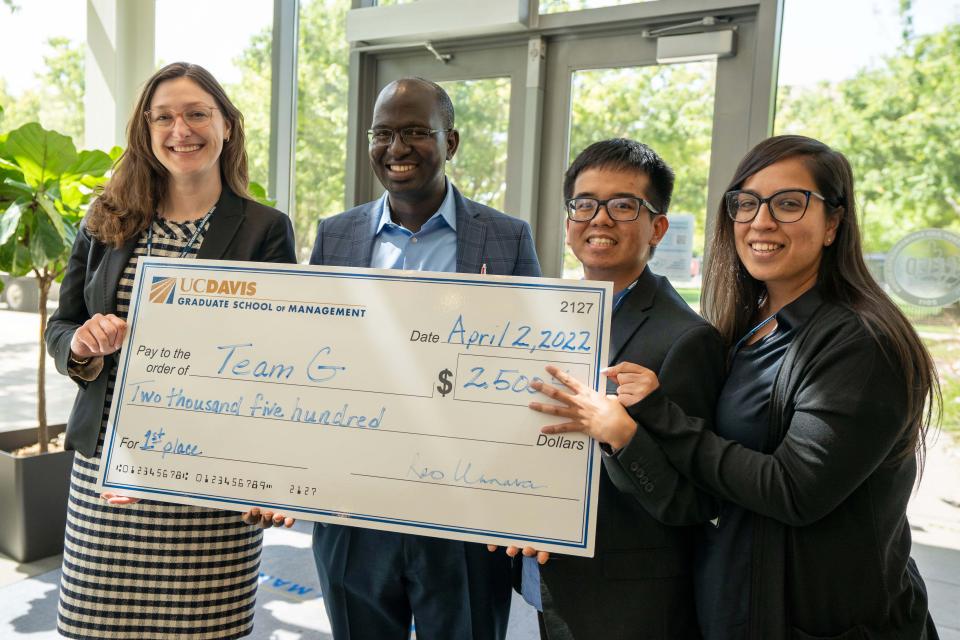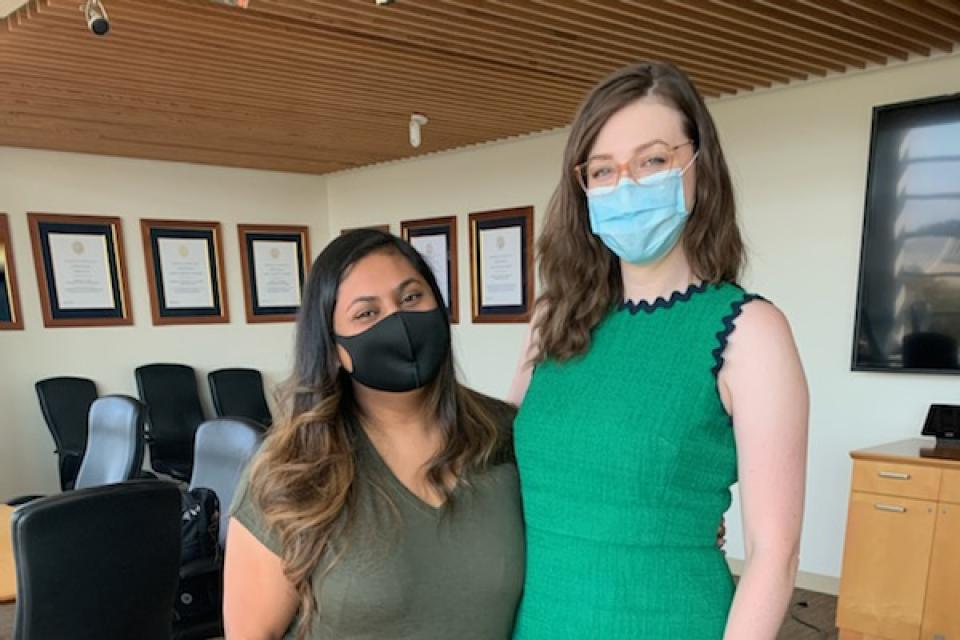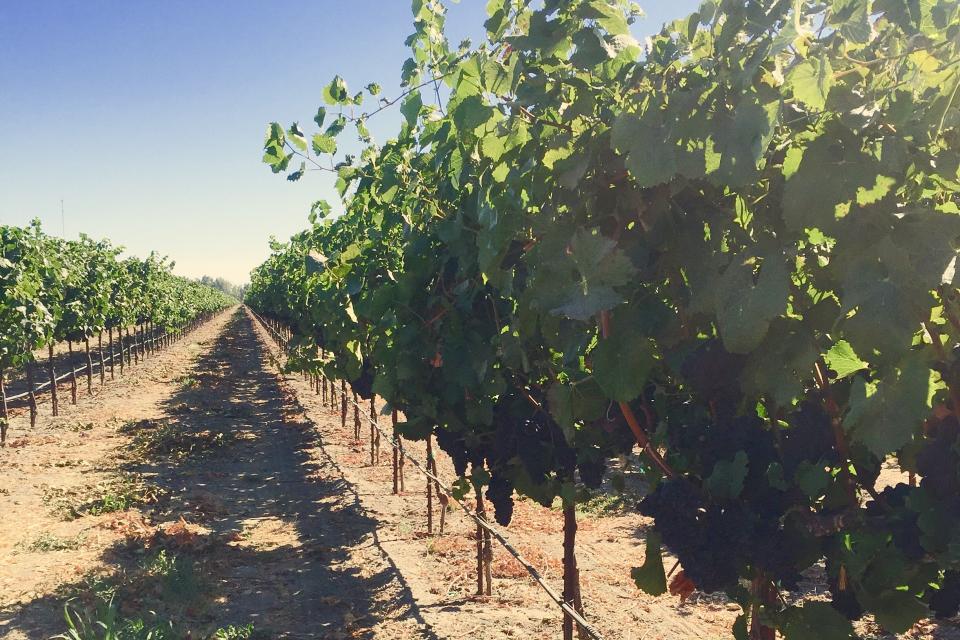Finishing First in the Inaugural UC Davis Food & Ag Case Competition
Our challenging, thrilling and fulfilling immersive student experience
As the clock struck 3 p.m., we were handed a multi-page case study to read. More than 30 students on 11 teams from eight West Coast business schools had convened at the UC Davis Graduate School of Management for a first-of-its-kind Food and Agriculture Case Competition.
We had no clue what the next 24 hours had in store for us.
We had just over 16 hours to review our materials, dive into our project, and develop our solutions to present to a panel of executives bright and early at 7:30 a.m. the next morning.
Before we all launched into the case, the teams gathered for dinner and we had the opportunity to mingle with food and ag. industry leaders and our peer students, but without revealing which school we were from. To keep the competition fair and the judging without bias, no students wore name tags and teams were identified by numbers.
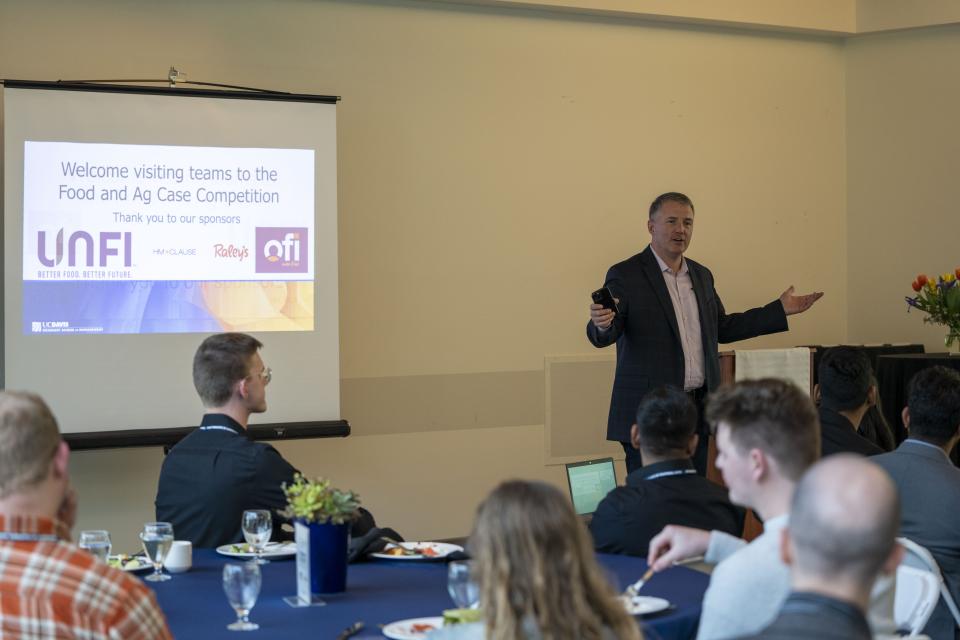
At dinner, Dean Unnava introduced MBA alumnus Jack Clare, the chief information officer for United Natural Foods Incorporated (UNFI), who described his company—the largest publicly traded wholesale distributor of health and specialty food in North America, which counts Whole Foods Market as the main customer. The competition’s case was based on real data about UNFI’s supply chain, information technology, and relationships with suppliers and retailers.
Before we adjourned, Clare fielded questions from students about the case as the clock was running and our anticipation in high gear. We would have a mere night to strategize, research and develop our solutions.
Our Dream Team
After dinner, the 11 teams quickly assembled in pre-assigned rooms throughout Gallagher Hall. I joined our UC Davis team with Molly Jo Scott and Nico Lingga.
Molly is a Full-Time MBA student with a background in music. She pivoted into the food and ag space when she joined the UC Davis MBA program, and she brought skills immediately useful for our group. Nico is a grad student in plant science and provided the perfect combination of chemistry and data expertise to our team. Lastly, I am a Sacramento Part-Time MBA student, third-generation farmer, and agriculture lender. Together, we made a stellar team.
The three of us first met in Lecturer Julie Morris’s Food and Ag Industry Immersion course. Nico and I had the opportunity to work together in the interdisciplinary class quite a bit, so when the opportunity for the case competition arose, he reached out to me. I had met Molly at a few events, but I hadn’t had the chance to work with her, that is, until 7 p.m. on April 1. Hello, April Fool’s Day!
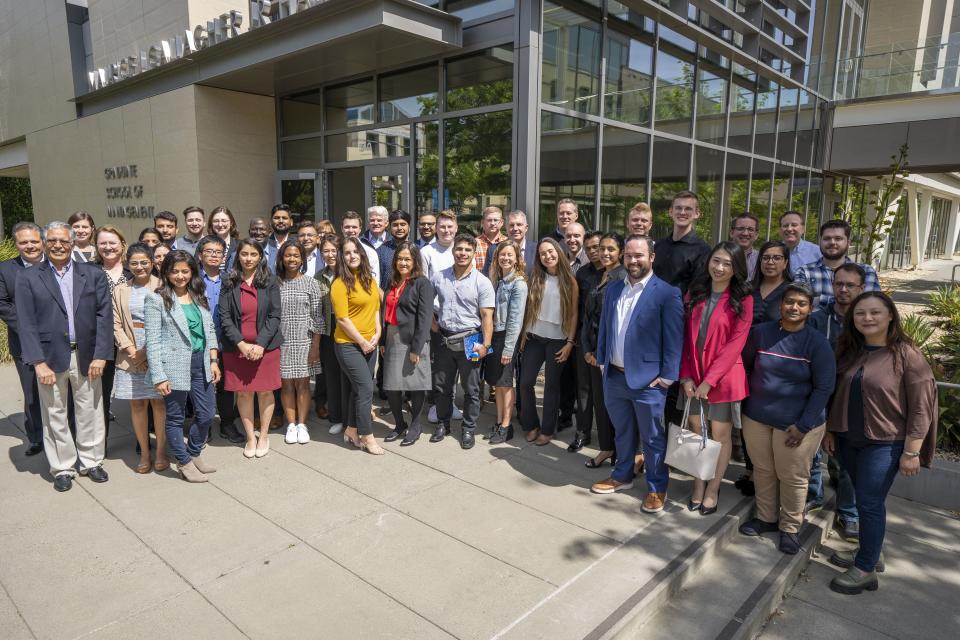
Ready, Set, Go!
The clock was ticking. As we walked into our windowless study room we knew we had to be efficient if wanted to get any rest.
We quickly made a plan. Molly’s experience from her IMPACT MBA consulting project was helpful and identified our presentation structure. One important item Molly handled was understanding the “why” of the problem, and discovering the root causes.
As Molly set up our structure, Nico and I worked on solutions. Each of us added our research and helped one another when needed. Before we knew it, we had heavy eyelids and time was running out.
As a team, we didn’t think time would have been one of the toughest constraints in the competition. But it was the research portion that was the most time-consuming.
In fact, researching why the problem was happening proved challenging. Yet if we didn’t understand the “why,” our solutions would be meaningless.
As midnight struck, I began to get a little nervous, but my team was one-of-a-kind. They reassured me constantly that “we got this.”
It was just after 2 a.m. when we broke off and retired for the night. We agreed to meet back up at 5 a.m. to finalize our project.
Before we knew it, we were back in our study room, and picked up where we left off. We added our final touches, turned in the presentation with minutes to spare, and hoped for the best.
Presenting to the Judges
The judges’ panel included Clare of UNFI, as well as CEOs and top executives from Raley’s supermarkets, HM.CLAUSE, OFI and BioConsorita. We presented our solutions and walked out of the room, relieved to be done.
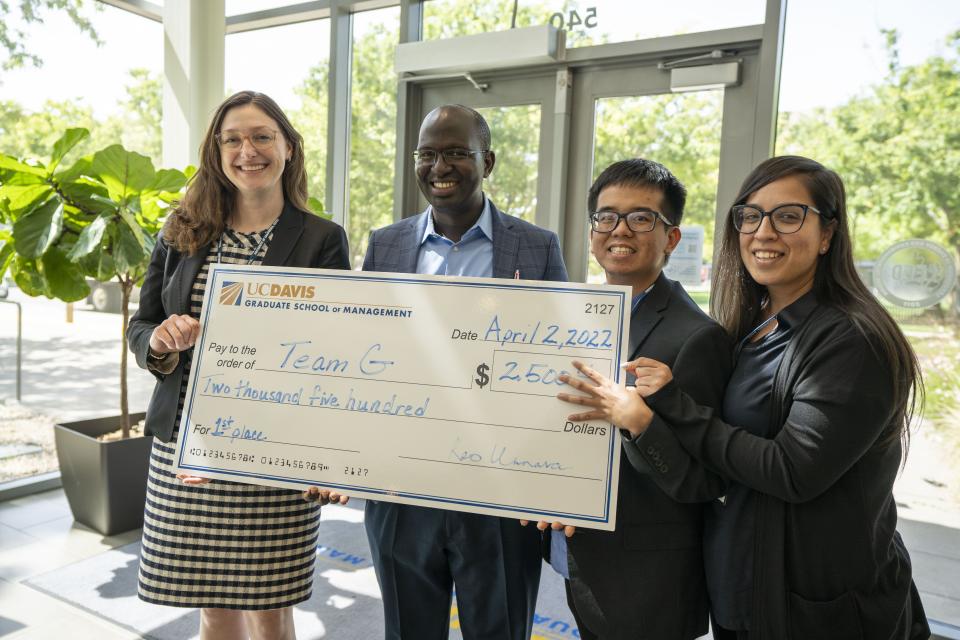
All we could think about was how challenging the whole process was, and that we were just so proud that was had the opportunity to be in the competition. We had a break before they announced the winners at lunch—to our surprise, we took first place. Each of us was in awe.
We knew we did our best in the given time, but with the talent that sat in the room from eight different West Coast business schools, we knew it would be competitive. That made us even more proud.
Looking back, I wouldn’t do it any differently. The true recipe to our success was our diverse backgrounds, how our MBA programs emphasize collaboration, and how diversity leads to more productive and effective teamwork. We were a prime example.
We saw each other’s strengths and weaknesses. We leaned on each other when needed to maximize our output and reach our full potential. When one of us needed motivation, we were able to provide it. We never gave up on each other, and always encouraged one another. Our goal wasn’t to win but truly experience the competition. To take home first place and earn $2,500 in prize money was an added bonus!
I want to thank the School, the competition sponsors and judges, and my teammates, Molly and Nico. The three of us probably would not have crossed paths were it not for the Industry Immersion experience and case competition, but I couldn’t ask for a better team!
